 Iran’s Attack on Israel
Iran’s Attack on Israel
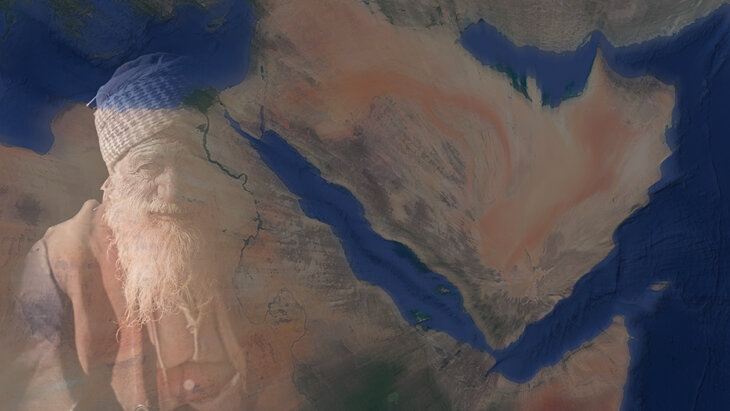
Jewish Geography

Jewish Geography
9 min read
Between forced conversion and emigration, the Jews of Yemen have all but disappeared from the region.
Once a bustling community at the very heart of Arabia, Yemen’s Jews came to settle in the land long before Islam ever graced the shores of the Hijaz (today known as Saudi Arabia).
The most ancient minorities to ever have settled in Arabia Felix (Yemen’s ancient name), the Jews of Yemen played an instrumental part in the development of the country, helping to shape the nation’s culture, history, and socio-economic advancements.
Today, the Jews of Yemen have all but disappeared from the region.
The Teimanim, as they are often referred to, rose to power in Yemen under the Judaized Yemenite Kingdom of Himyar (400-525 AD). For centuries, Jews and Muslims would learn from one another, drawing from each other’s culture. Religious intolerance had not yet called on men to fear their neighbors on the basis of their differences.
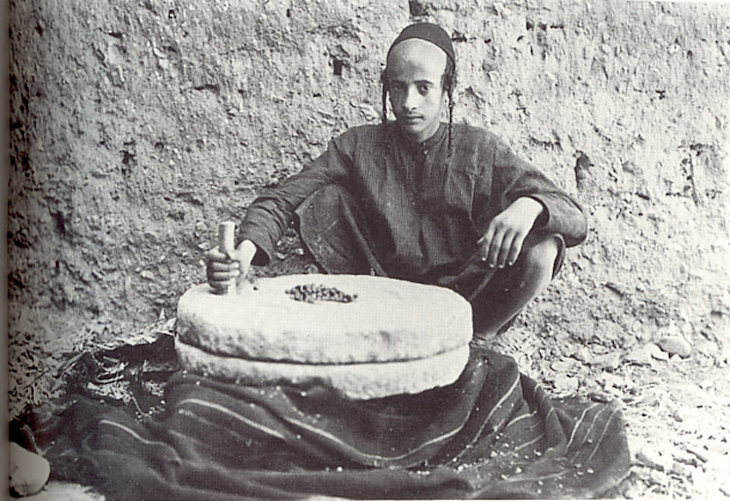 A Jewish youth grinding coffee on millstone, Sana'a (Yemen) 1934
A Jewish youth grinding coffee on millstone, Sana'a (Yemen) 1934
Unlike many other Jewish communities in the region, the Jews of Yemen enjoyed relative peace with their Arab neighbors, free to practice their faith. That changed in 1922 when an ancient Islamic practice was revived calling for the forced conversion of orphans to Islam. As the decades rolled on Yemen’s Jews came to face increased violence and state-run oppression, forcing many to abandon their homes for safer shores.
The birth of the modern State of Israel in 1948 would come to upset Yemen’s delicate religious status quo, putting sectarianism at the center of a heated political and religious debate – one which would be punctuated by violence and the mass return to Israel of thousands of Yemeni Jews. Between June 1949 and September 1950, in Operation “Magic Carpet.” an estimated 45,000 Jews , almost the entirety of Yemen’s Jewish community would leave their home, never to return.
Today only a few remain.
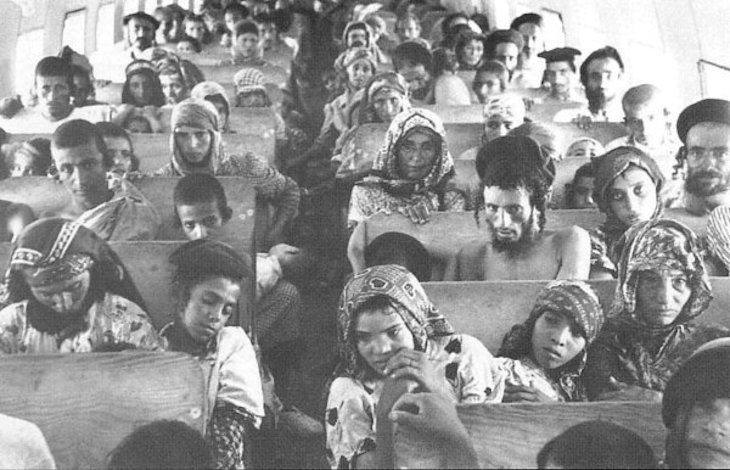 Operation Magic Carpet
Operation Magic Carpet
I first came in contact with Yemen’s Jewish community in 2010 when I lived in Sana’a, the capital, a few months before the Arab Spring, at a critical juncture in our modern history.
Jacob was head of security for Total E&P at the time. While our initial rapport was rather brief and our conversations limited (my Arabic was not the best), he quickly opened up to me after finding out that like him, I was a Jew living in Arabia, a land often hostile to religious minorities. And though our upbringing could not have been more different, I recognized his pain and longing for peace.
Jacob managed to build a good life for himself and his family, but he confesses that his success came at a great cost – that of a forced conversion and a double identity. Known as Magid by his colleagues, Jacob moved with his family from Aden back in 1990, on the heel of Yemen’s reunification in the hope that Sana’a would offer better opportunities, and the chance of a new life.
Jacob’s family converted to Islam in early 1948 to avoid being executed by gangs.
“My family converted to Islam in early 1948 to avoid being executed by gangs. Violence against Aden Jewish community broke following accusations that we practiced sacrificial murders. Tens of thousands of Jews left for Israel at the time, their businesses and homes having been attacked by mobs. Others, like my family, decided to stay on and hide our identity by espousing Islam… My parents were newlyweds back then and my mother did not want her first-born (me) to be born in exile. Even if Israel is ultimately our land, my parents felt more connected to Yemen, the only home they’ve ever known.
“I was born in Crater, a popular neighborhood of Aden, the son of a civil engineer and a teacher. My life back then was simple and trouble-free if not for the secret that we kept from our friends and neighbors. In order to live freely my father had decided to outwardly become a Muslim. At the time being a Muslim in South Yemen did not require much; it is only with the arrival of the Muslim Brotherhood in the 1990s that Aden reverted to conservative Islam.
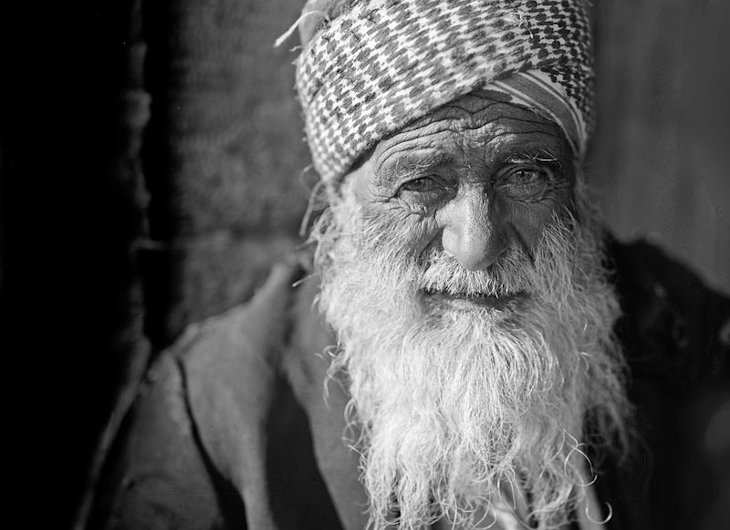 A Yemenite Jew in the early 1900s
A Yemenite Jew in the early 1900s
“My great-uncle and father’s cousin were killed during the riots of 1947, and several of our parents’ friends’ businesses had been looted and their home sacked by angry mobs. Although I did not witness the violence myself, my father made a point of telling me growing up what dangers we would face should we ever speak of our origins. I grew up knowing that my country would never completely accept me for me, that my faith had made me a pariah and a criminal. The Jews of Yemen have suffered terrible injustices for over a hundred years.
“I consider myself lucky. My parents’ conversion to Islam allowed me to pursue to a good education and provide a good standard of living for my family, privileges that would otherwise have been denied to me. From the early 1950s Jews were pushed out of society and their economic prospects severely limited by widespread antisemitism. Many professions were completely closed to us, forcing us to operate within our community.”
While the Jews of Yemen enjoyed relative peace under the presidency of Ali Abdullah Saleh, the advent of the Houthi Movement in 2011 and the group’s subsequent seizure of power in September 2014 profoundly changed the game, forcing many families to flee the country, so disillusioned they had become with any form of civil reconciliation.
“People may say what they wish about the former regime and the corruption Yemen suffered but we enjoyed a period of safety and social stability,” Jacob tells me. “At least under Saleh’s rule the Jews of Yemen could claim to some degree of recognition. True, we were not allowed to hold positions of power and we had to ask the state’s permission to build our schools, but we were used to those limitations. We knew how to exist within the system. Today we face open oppression to the point that we all have been driven out. And those who, like me, either refused to leave or couldn’t, have had to be driven underground, our true faith hidden from all.
“Being a Jew under Houthi rule is considered a crime of apostasy. For all the pogroms we have endured over the centuries, Yemen has become the new frontline of religious intolerance. There is no more ground left for us to retreat on, no more corner of the land upon which to rebuild our temples or reaffirm our traditions. Today I live in the hope that my children and their children will reconnect with their roots. I carry a lot of shame with me… I lived in hiding my entire life. Every day I pretend to be someone I’m not out of fear for my family, and though I have tried to tell myself that it is our only option, I can’t help but think of all those who continue to fight for their identity regardless of what may happen. Our choice is an impossible one.”
It is difficult to know how many Jews like Jacob have chosen conversion over oppression.
For centuries Yemen has had a complicated relationship with its religious minorities, even more so with its Jewish communities. More often than not they were looked upon as the source of all the country’s woes, so much so that specific laws were issued against them so that they would be kept on the margins of society.
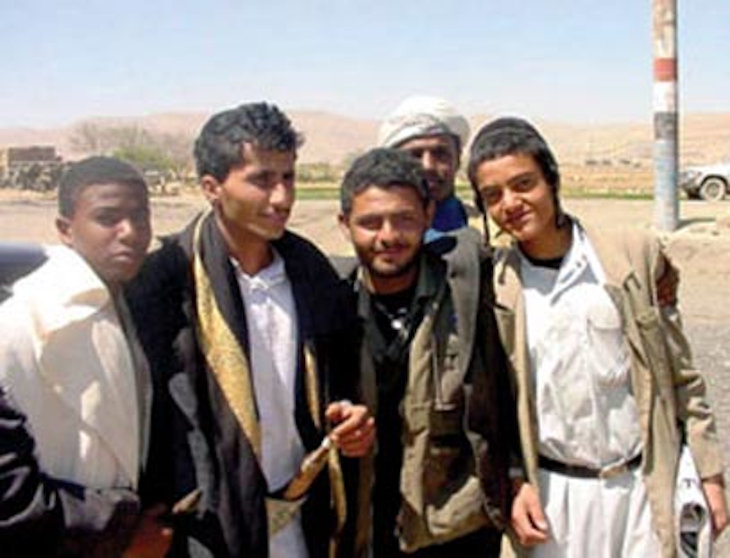 Jews in Yemen, 2007
Jews in Yemen, 2007
Jacob tells me of a law in North Yemen which required Jewish homes to be built much lower than that of their neighbors.
“A law required Jews to have much smaller houses in contrast to Muslim dwellings. This was made to symbolize the supremacy of Islam in Yemen and to prevent Jews from externalizing their wealth. The Jews of Yemen were once the pride of Arabia. Our history is being disappeared and re-written, our footprints denied by clerics who wish to deny our existence.
“My wife’s family is originally from Sa’ada (North Yemen) and her family suffered a much more terrible fate than mine. In the 1960s tribesmen in North Yemen took the habit of periodically kidnapping girls from the Jewish community to forcibly marry them to Muslim men hoping to cut us off from our roots. Several members of my wife’s family were lost this way, never to be seen again.
“Like me, Nawal converted to Islam as a girl. It was only after we were married that she reconnected to Judaism. It’s been a difficult journey, even more so now that I have grand-children. I so desperately want to teach them about our history, our traditions, but it is difficult to do so under the threat of the Houthis and their slogans. Our children are losing their connection to Judaism, we have had to make so many concessions over the years … so much has been lost to us.”
Brought to power after President Abdo-Rabbo Mansour Hadi’s departure in late 2014, the Houthis quickly enforced antisemitism as an expression of Yemeni nationalism. Opening every public statement or speech with the infamous: “Death to America, Death to Israel, Damn the Jews”, the Houthis have made their position towards Yemen’s Jewish community abundantly clear.
Jacob lives in fear. “Yemenis as a whole are suffering under the rule of the Houthis. There is a fear today that the state might look closer to our origins and question our conversions. The Jews of Yemen gave so much by way of culture – our music, our arts, our literature. One day, I feel sooner rather than later, nobody will remember that we were here, in this land that we have called home for more generations than I can count.”

In March 2022 the United Nations reported there is just one Jew in Yemen (Levi Salem Marhabi (Kept in prison for years for smuggling a torah Scroll out of Yemen) Although a UN report of February 2022 reports the number of Jews still living as 7; other 2021 reports say the total is from 6 to 4still alive
Who will his grandchildren marry? Money isn't more important than G-d. Jews in Yemen once had sheiks who PROTECTED "their Jews," each sheikh within his particular hamula/clan. In 1990, one such sheikh who was obligated to PROTECT his Jews, KIDNAPPED a married Jewess who'd gone to a well to draw water. He immediately took her to a qadi/judge where she "converted to Islam" & married the sheikh. The Jewish husband tried repeatedly to get justice from an Islamic court, until finally Arabs from the area threatened to murder him. Around the same time, about 80 kilometres from San'a, a Jewish husband & wife were murdered by robbers. Their 14 children were forcibly converted to Islam. Soon after, the oldest, a girl, jumped off a cliff to kill herself rather than lead such a life.